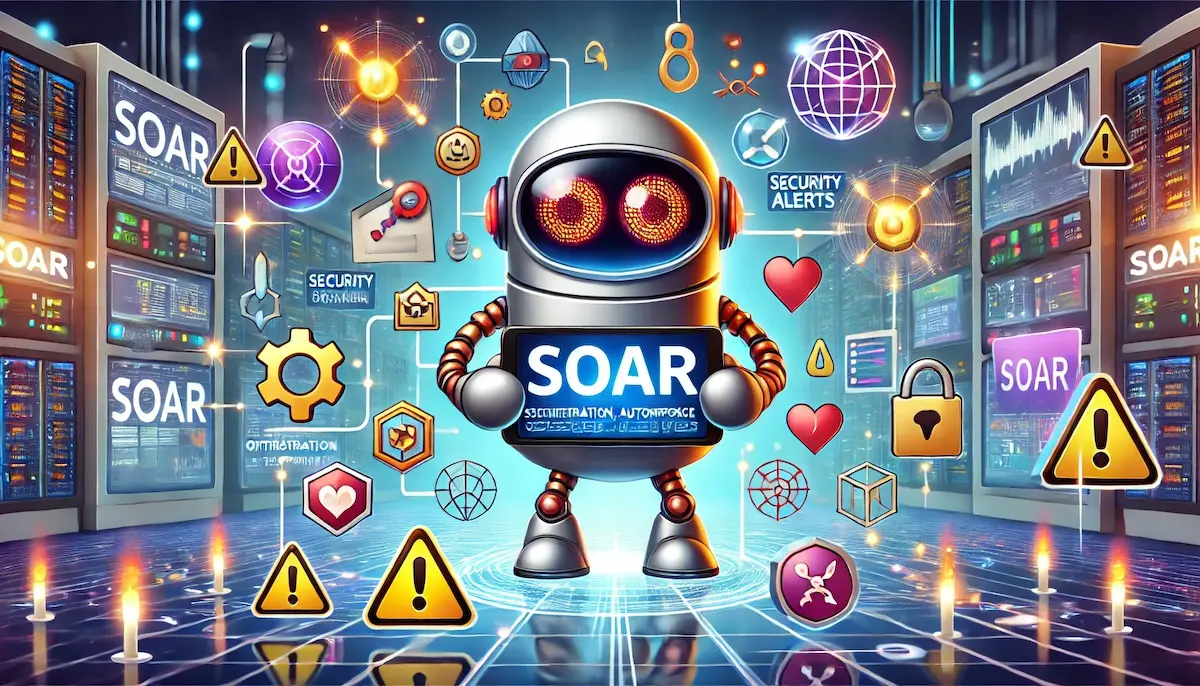Security Orchestration, Automation, and Response (SOAR) is a category of security solutions designed to streamline and enhance an organization’s ability to respond to cybersecurity threats. SOAR platforms integrate various security tools and processes, automate routine tasks, and orchestrate responses to incidents, thereby improving the efficiency and effectiveness of security operations.
Origins and Importance
The concept of SOAR emerged in response to the growing complexity and volume of cyber threats, which often overwhelm traditional security operations centers (SOCs). As organizations deployed more security tools and generated more data, the need for a more coordinated and automated approach became evident. SOAR addresses this need by providing a unified platform that helps security teams manage and respond to threats more efficiently.
SOAR is important because it helps organizations enhance their cybersecurity posture, reduce response times, and mitigate the impact of security incidents. By automating repetitive tasks and orchestrating complex workflows, SOAR allows security teams to focus on more strategic activities and improve overall security outcomes.
Key Characteristics
- Integration: SOAR platforms integrate with a wide range of security tools and systems, including SIEM, firewalls, intrusion detection systems (IDS), and threat intelligence platforms. This integration enables seamless data sharing and coordination across the security infrastructure.
- Automation: SOAR platforms automate routine and repetitive tasks, such as data collection, alert triage, and initial incident investigation. Automation reduces the workload on security analysts and ensures consistent, timely responses.
- Orchestration: SOAR orchestrates complex workflows by coordinating actions across multiple security tools and processes. This orchestration ensures that responses to incidents are comprehensive and well-coordinated.
- Incident Management: SOAR platforms provide centralized incident management capabilities, allowing security teams to track, analyze, and respond to security incidents in a structured and efficient manner.
- Playbooks: SOAR platforms use playbooks, which are predefined sets of rules and procedures for responding to specific types of incidents. Playbooks standardize responses and ensure that best practices are followed.
Benefits of SOAR
Implementing SOAR platforms offers several significant advantages:
- Enhanced Efficiency: By automating routine tasks and orchestrating complex workflows, SOAR platforms significantly improve the efficiency of security operations.
- Reduced Response Times: Automation and orchestration enable faster detection and response to security incidents, minimizing the potential impact of threats.
- Improved Consistency: Playbooks and automated processes ensure that responses to incidents are consistent and adhere to established best practices.
- Better Resource Allocation: By reducing the manual workload on security analysts, SOAR platforms allow them to focus on higher-value activities, such as threat hunting and strategic planning.
- Scalability: SOAR platforms can scale to meet the needs of organizations of all sizes, making them suitable for both small businesses and large enterprises.
Applications of SOAR
SOAR platforms are used in a variety of applications, including:
- Threat Intelligence: Integrating and automating the ingestion and analysis of threat intelligence feeds to stay updated on the latest threats.
- Incident Response: Automating the detection, investigation, and response to security incidents, ensuring timely and effective mitigation.
- Vulnerability Management: Orchestrating the identification, assessment, and remediation of vulnerabilities across the IT infrastructure.
- Compliance and Reporting: Automating compliance checks and generating reports to ensure adherence to regulatory requirements and internal policies.
Challenges and Considerations
While SOAR platforms offer numerous benefits, there are challenges to consider:
- Complexity and Cost: Implementing and managing SOAR platforms can be complex and costly, requiring specialized knowledge and resources.
- Integration Challenges: Ensuring seamless integration with existing security tools and systems can be challenging and may require significant customization.
- False Positives: Automation can sometimes result in false positives, which need to be managed to avoid alert fatigue and ensure that genuine threats are prioritized.
- Change Management: Adopting a SOAR platform requires changes to existing processes and workflows, which can be difficult for some organizations to manage.
Conclusion
Security Orchestration, Automation, and Response (SOAR) platforms are transformative tools that enhance an organization’s ability to manage and respond to cybersecurity threats. By integrating security tools, automating routine tasks, and orchestrating complex workflows, SOAR platforms improve the efficiency and effectiveness of security operations. Despite the challenges associated with implementation, the benefits of SOAR make it a valuable addition to any modern cybersecurity strategy.
Blockfine thanks you for reading and hopes you found this article helpful.
